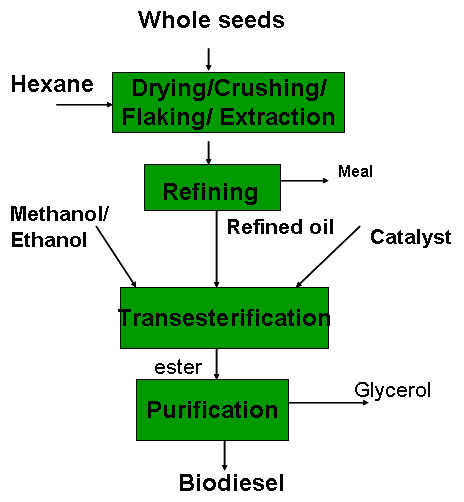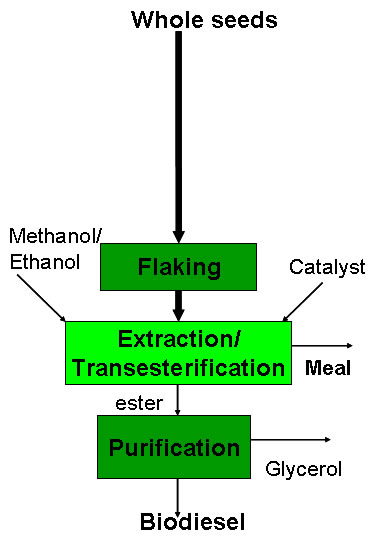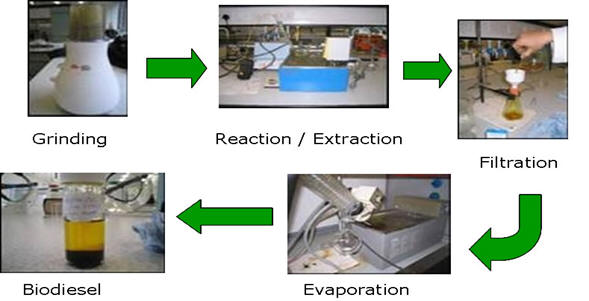|
Reactive Extraction of
Biodiesel
In the current processes for
biodiesel production, pre-extracted oil which is
usually degummed and refined is used as the
starting material. However, transesterification
of the oil can actually be carried out directly
from the plant seeds without prior extraction.
This route will simplify and improve the
efficiency of the methyl ester production
process as well as has the potential to reduce
production cost. Using this technique, the use
of hexane to extract the oil can be eliminated
as the extraction is being carried out by the
reactant itself.

Conventional
Transesterification |

Reactive
Extraction/In
Situ
Transesterification |
In the current study, the
steps and parameters involved in the integrated
extraction/reaction scheme will be investigated.
The optimum values for methanol/oil molar ratio,
catalyst concentration and temperature may
differ between conventional transesterification
and the combined reaction/extraction scheme.
Parameters that affect extraction such as seeds
pretreatment, particle size, moisture level, and
solvent amount will also be evaluated. A more
suitable catalyst may also need to be identified
since the common alkaline catalyst for
transesterification is adversely affected by
water, which is inevitably present in the seeds.

Reactive Extraction
Process Flow
For more information please
contact Prof Adam Harvey.
|